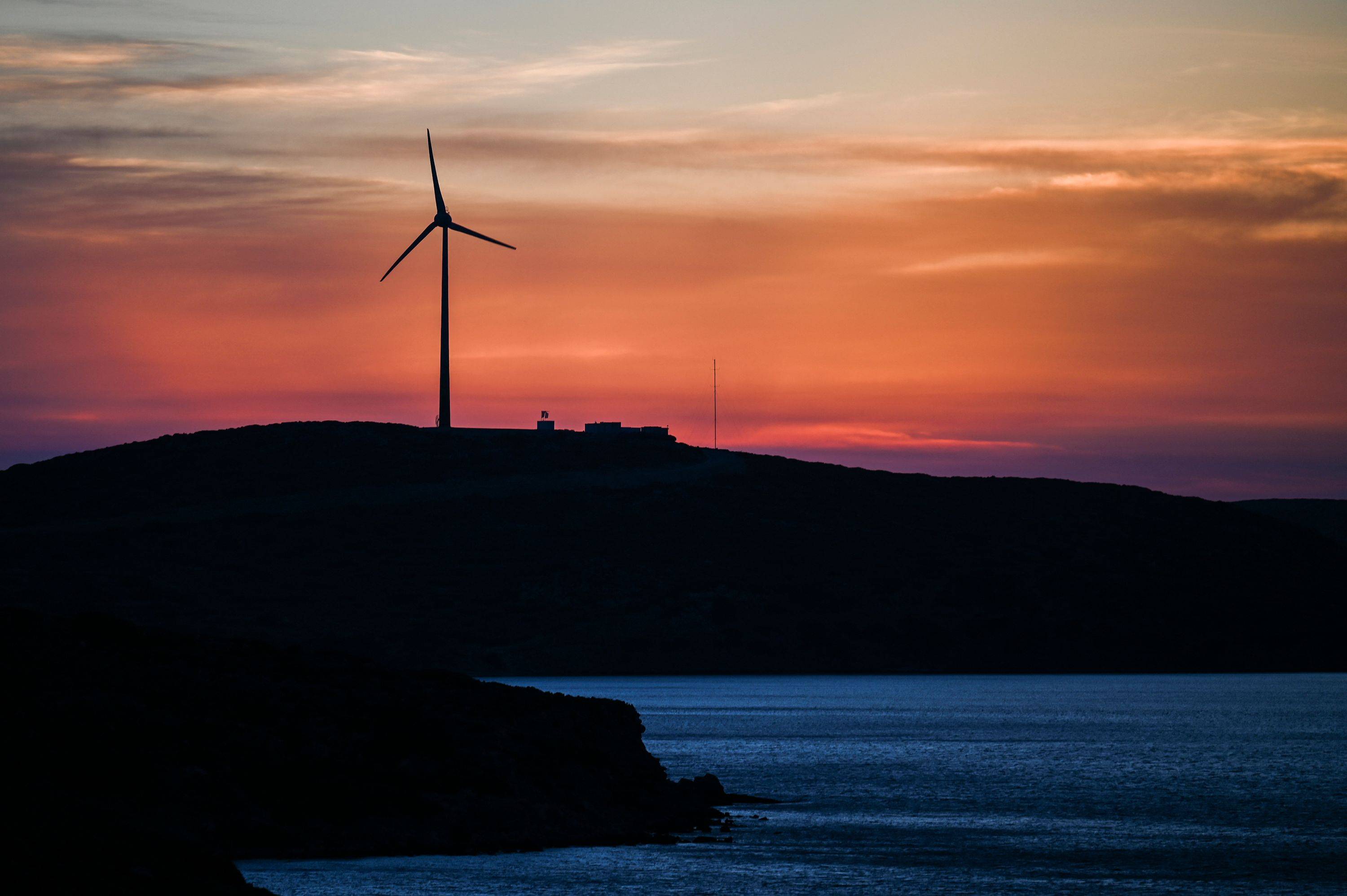

A wind turbine in Tilos island in Greece in June. Under Japan's draft basic energy policy for fiscal 2030, renewable energy will account for 36% to 38% of total power production, up from 22% to 24% in the previous plan. | AFP-JIJI
By Osamu TsukimoriJapan aims to raise its share of nonfossil fuels for electricity generation, including renewables and nuclear power, to about 60% of total production by fiscal 2030 — 2.5 times the current level — the trade ministry’s draft basic energy policy showed Wednesday. But experts say the ambitious target may not be feasible.
The first revision of the energy policy in three years took into account the nation’s new target of a 46% cut in greenhouse gas emissions by 2030 from fiscal 2013 levels that was announced in April, a sharp upgrade from the 26% cut that the world’s fifth-biggest emitter had pledged six years ago.
Renewable energy will account for 36% to 38% of total power production, up from 22% to 24% in the previous plan for 2030, while the share of nuclear power was kept at 20% to 22%. In fiscal 2019, renewables and nuclear made up 18% and 6% of total power generation, respectively.
In a time of both misinformation and too much information,
quality journalism is more crucial than ever.
By subscribing, you can help us get the story right.